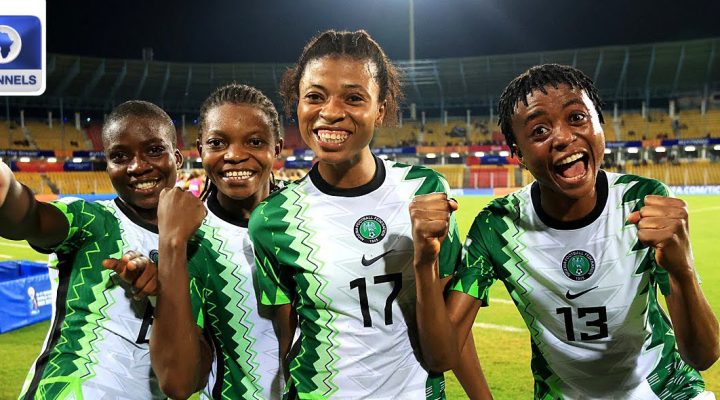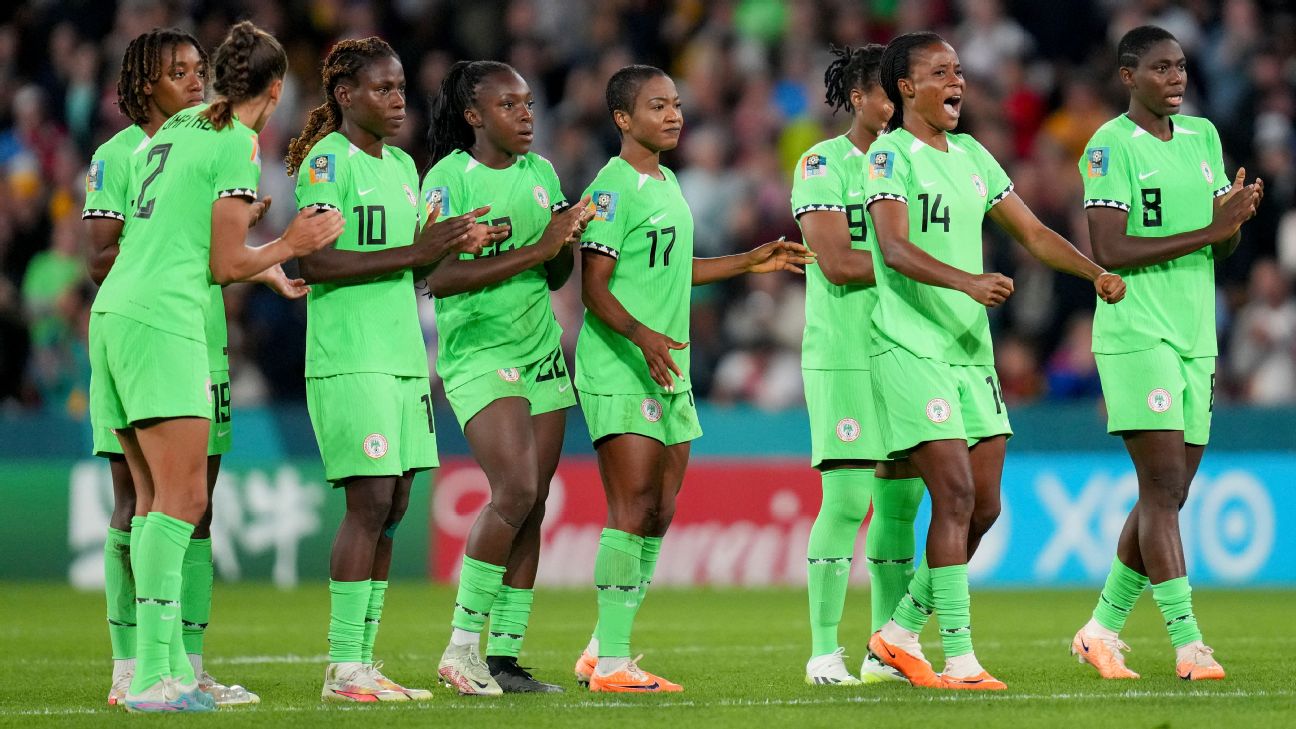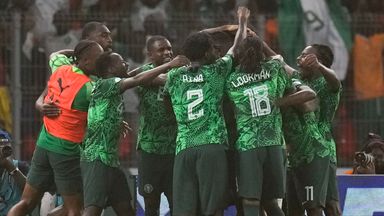How Introduced Soccer In Nigeria: The Evolution Behind Football Within…
페이지 정보
작성자 Leandra 작성일24-12-08 20:58관련링크
본문
A tremendous 67% of Nigerians see Football, which shows how much the sport influences Nigerian culture. Football's journey in Nigeria began over 100 years back, shaping the nation's sporting landscape.
Football in Nigeria go back to the early 1900s. British colonisers brought the sport to the country in 1904. The very first documented football match occurred that same year, starting Nigeria's abundant footballing history.
By 1950, Football had become Nigeria's national video game. Its quick increase resulted in numerous clubs and associations forming in the early 1900s. This growth enhanced Nigerian pride and helped motivate political flexibility motions.
Nigeria's football tradition now reaches beyond its borders. For many years, the nation has actually produced first-rate skill, and Nigerian youth groups have won the FIFA U-17 World Cup 5 times.
The Super Eagles, Nigeria's national team, are a force in African Football. They often receive substantial competitions and make their mark internationally.
The British Colonial Introduction of Football to Nigeria
Football got here in Nigeria during the British colonial period. It rapidly caught the hearts of residents, marking the start of a rich footballing custom in the nation.
The First Football Match in 1904
The first football match in Nigeria happened in June 1904. It was between Hope Waddell Training Institution and the crew of HMS Thistle. The Nigerian team won 3-2, sparking an across the country passion for the sport.
Hope Waddell Training Institution vs HMS Thistle
I hope the Waddell Training Institution in Calabar played a crucial function in early Nigerian Football. Their victory over HMS Thistle's team revealed the skill of Nigerian players. This match set the stage for Football's development in the nation.
Early Football Club Formation (1906-1932)
After the 1904 match, Football's popularity skyrocketed. From 1906 onwards, early football clubs started forming, and this grassroots motion spread out the sport throughout Nigeria.
The Lagos District Amateur Football Association (LDAFA) was established in 1932. The LDAFA marked the start of organised Football in Nigeria and led the way for the sport's future success nationally and worldwide.
Who Introduced Football in Nigeria
Football showed up in Nigeria in the early 20th century. British colonisers brought this precious sport to the West African nation. It quickly ended up being an enthusiasm that shaped Nigeria's sporting landscape for generations.
Function of British Colonisers
British colonisers played an important function in Nigeria's football history. The very first taped match happened in June 1904. Hope Waddell Training Institution faced the team of HMS Thistle.
The Nigerian group won 3-2. This success marked the beginning of an abundant football legacy in the nation.
Development of First Football Association
The Lagos District Amateur Football Association (LDAFA) was established in 1932. It prepared for organised Football in Nigeria, which led the way for the Nigerian Football Association (NFA).
The NFA was founded in 1945. It ended up being the national governing body for Football and supervise its development across the country.
Development of Local Football Culture
Football rapidly took root in Nigeria, becoming the national sport by 1946. Its accessibility and basic guidelines assisted it spread quickly. Local communities accepted the game, forming their groups.
This grassroots interest laid the structure for Nigeria's future success. The nation's enthusiasm for Football grew, resulting in accomplishments on the worldwide phase.

"Football ended up being more than simply a sport; it developed into an essential Nigerian culture and identity element."
The British colonisers' intro of Football triggered a sporting revolution in Nigeria. Football's journey mirrored the nation's development of football in nigeria from the first match in 1904 to the formation of the NFA in 1945.
Today, Football stays an integral part of Nigerian life. It's a testimony to the sport's enduring appeal and cultural significance in the country.

The Rise of Nigerian Football Administration
The Nigerian Football Association (NFA) was developed in 1945. It played an essential role in shaping Nigerian Football. In 1949, the NFA formed Nigeria's very first national football team.

In 1959, Nigeria signed up with the Confederation of African Football (CAF), which permitted it to take part in continental competitions. Nigeria also ended up being a FIFA member in 1960, signing up with the international football neighborhood.
The NFA, later on renamed the Nigeria Football Federation (NFF), organised national competitions. They developed the Nigerian Premier League and the Federation Cup, which became the highlights of domestic Football.
Football associations across Nigeria grew under the NFF's guidance. They supported skill and promoted grassroots development. Professional Football began in 1990 with sixteen club sides getting involved.
"Our objective is to restore football development at the national level and repackage the league in line with global finest practices," specifies the Nigeria National League.
The Premier League was implemented in 2003. This relocation intended to improve domestic football requirements and bring in more spectators and sponsors to national competitions.
Nnamdi Azikiwe's Impact on Nigerian Football
Nnamdi Azikiwe, born in 1904 in Zungeru, Northern Nigeria, left an indelible mark on Nigerian Football. His influence formed the nation's sporting landscape. Azikiwe's passion for sports came from his varied experiences and education abroad.
Facility of Zik's Athletic Club
In 1938, Azikiwe founded Zik's Athletic Club (ZAC) in Lagos. This club became a symbol of African self-determination. ZAC played an important function in developing Nigerian Football.
It supplied a platform for young athletes to showcase their skills. The club promoted local talent and promoted a sense of national pride.
The West African Pilot's Influence
Azikiwe's paper, the West African Pilot, played a substantial role in popularising Football across Nigeria. It extensively covered regional matches, team news, and player profiles. This media attention assisted grow the sport's fan base.
Football as a Tool for Independence
Azikiwe saw Football's potential as a unifying force in the self-reliance movement. He used the sport to break down ethnic barriers, and Football became a symbol of Nigerian unity through his advocacy.
Azikiwe's efforts linked Football to nationalism, contributing substantially to the sport's development and forming its function in modern-day Nigeria.
"Football is not simply a video game; it's an effective nationwide unity and identity tool."
Nigeria's Journey to International Football Recognition
Nigeria's football journey took a significant leap forward in 1960. The nation got FIFA subscription, marking its entry into international Football. This milestone coincided with Nigeria's self-reliance from British guideline.
FIFA Membership and First International Match
Nigeria's very first international match happened on 8 October 1949. They faced Sierra Leone and won 2-0 in a historic encounter. This victory stimulated enthusiasm for Football across the country.
Early Continental Competitions
Nigeria debuted in the Africa Cup of Nations in 1963. The tournament, hosted by Ghana, saw Nigeria dealing with tough challengers. These experiences showed important for the group's development.

Nigeria's perseverance paid off in 1973. They clinched gold at the All-Africa Games, marking their first major continental success. 1976, they protected bronze at the Africa Cup of Nations in Ethiopia.
Nigeria's football expertise grew in the 1970s. In 1978, they duplicated their bronze medal task in Ghana. 1980, Nigeria hosted and won its first Africa Cup of Nations title.
Development of Nigerian Football Governance
Nigerian football governance has seen significant changes and obstacles because 1945. The Nigeria Football Federation has shaped the country's football landscape, and its journey has actually been complex and transformative.
From NFA to NFF
The nigeria national Football Association began in 1945. It became the Nigeria Football Federation in 2008. This modification aimed to modernise the organisation's structure.
In 2019, an expense was passed to identify the NFF formally. It's still awaiting presidential approval.
Advancement of League Systems
The NFF manages three primary leagues: the Nigerian Premier League, Amateur League, and Women's League. These competitors form the foundation of Nigerian Football.
They foster talent and promote the sport nationwide. Nevertheless, difficulties like postponed seasons and venue disagreements persist.
National Team Formation
Nigeria's Super Eagles national team was formed in 1949. They've received 6 FIFA World Cups and won 3 Africa Cup of Nations titles.
These achievements have boosted nigeria national's standing in international Football. The Super Eagles' success has actually put Nigeria on the international football map.

Nevertheless, Nigerian Football deals with ongoing obstacles. A research study revealed high levels of corruption in football governance. This affects agreement awards and player selection.
These issues highlight the requirement for reform. For the sport to grow, transparency in the Nigerian football administration need to enhance.
Conclusion
Nigerian Football's legacy showcases the country's durability and enthusiasm. It began in 1904 with Hope Waddell Training Institute dealing with HMS Thistle. Since then, Nigeria has become a powerhouse in African Football.

The sport's growth shows the country's journey from colonial guideline to independence. It has fostered a sense of national identity and unity. Nigeria's worldwide football recognition is undeniable that football.
The Super Eagles' gold medal at the 1996 Atlanta Olympics is an emphasize. Their impressive FIFA World Cup efficiencies also stick out. Nigeria has actually received six World Cups.
In 1994, Nigeria accomplished its greatest FIFA ranking of 5th, solidifying its place on the international phase. Nigerian Football continues to progress with appealing potential customers.
Talents like Ahmed Musa and Kelechi Iheanacho shine in top European leagues. This bodes well for the sport's advancement. The Nigeria Football Federation guides the video game's progress.
Football's enduring legacy in Nigeria inspires upcoming generations and assures an exciting future for the sport. The gorgeous video game stays a source of nationwide pride and unity.
FAQ
Who presented football to Nigeria?
British colonisers brought Football to Nigeria in the early 1900s. The sport quickly ended up being popular and woven into Nigerian culture.
When was the first football match played in Nigeria?
The very first documented football match in Nigeria occurred in June 1904. Hope Waddell Training Institution played against the HMS Thistle crew. The Nigerian team won 3-2.
How did Football end up being Nigeria's national sport?
Football's simple guidelines and accessibility made it popular in nigeria professional football league. By 1950, it was the national game, motivating pride and liberty motions.
What function did Nnamdi Azikiwe play in Nigerian Football?
Nnamdi Azikiwe, Nigeria's first President, was vital in developing Football. He started Zik's Athletic Club in Lagos in 1938, and his paper, the West African Pilot, linked Football to the self-reliance movement.
When did Nigeria sign up with FIFA?
Nigeria ended up being a FIFA member in 1960, the very same year it acquired self-reliance. This marked Nigeria's official entry into international football governance.
What is the Nigerian Football Federation?
The Nigerian Football Federation (NFF) governs Football in Nigeria. It progressed from the Nigerian Football Association, established in 1945. The NFF arranges national leagues and competitors, including the Premier League and Federation Cup.
What significant successes has Nigerian Football accomplished?
Nigeria has played in 6 FIFA World Cups. The Super Eagles national team has actually won 3 African Cup of Nations. They've also won gold in the 2nd All-Africa games.

 > 고객센터 > 부고함
> 고객센터 > 부고함
 장례협동조합국화원
장례협동조합국화원